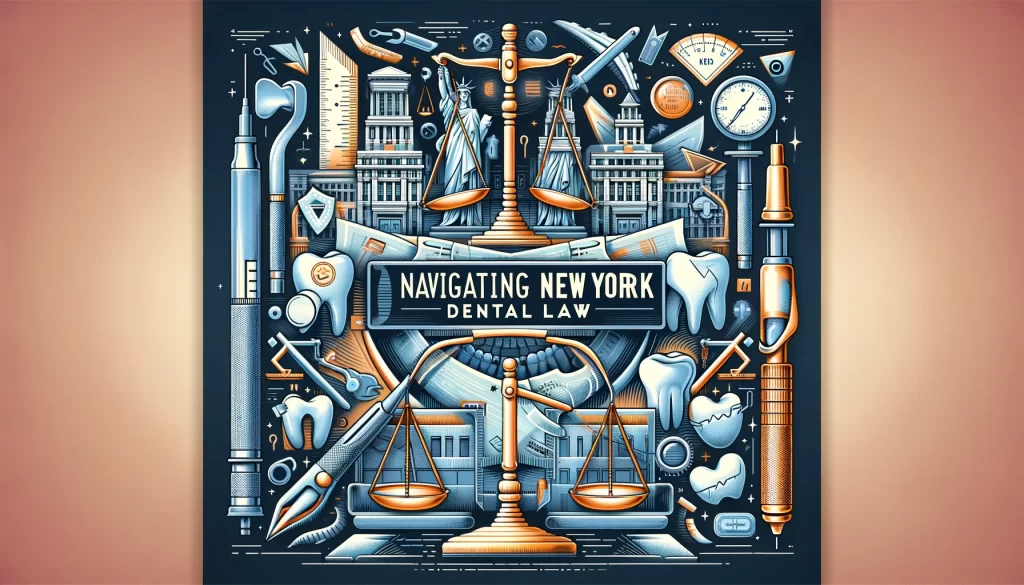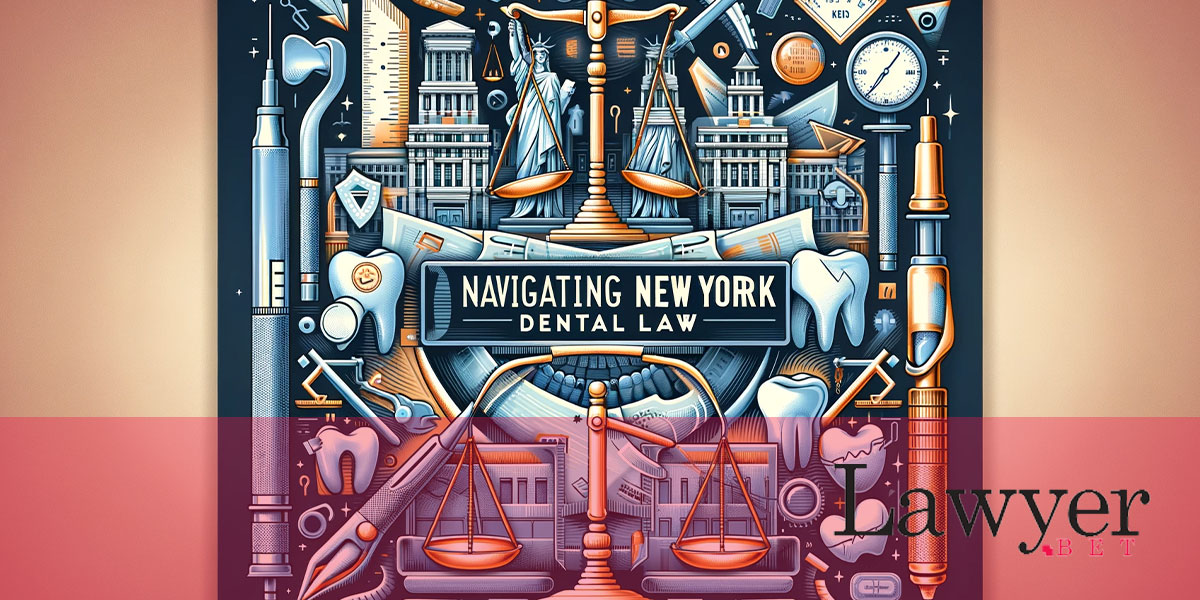Mastering the Intricacies of New York Dental Law
Practicing dentistry in New York State involves adhering to a comprehensive set of regulations and standards aimed at ensuring top-notch patient care and maintaining professional integrity. For attorneys specializing in New York dental law, a deep understanding of these legal frameworks is crucial for providing superior guidance to dental professionals. This detailed guide explores the essential elements of dental legislation in New York, covering licensing, practice requirements, patient rights, and professional conduct, to help legal practitioners navigate these complex regulations effectively.
New York Dentist Licensing Essentials
Becoming a licensed dentist in New York is a rigorous process, reflecting the state’s dedication to high standards in dental care. Aspiring dentists must meet several requirements, including educational achievements, passing examinations, and upholding ethical standards.
Educational and Examination Criteria
A robust dental education, culminating in passing a series of exams that evaluate both theoretical knowledge and clinical skills, is the cornerstone for any dentist seeking licensure in New York.
Ongoing Education and Professional Growth
After obtaining a license, dentists are required to participate in continuous education and professional development activities to ensure their practices remain aligned with current standards and technological advancements in dentistry.
Compliance and Practice Standards in New York
New York enforces stringent guidelines for dental practices, encompassing patient safety protocols, the use of dental materials, and technological standards. These regulations ensure that patient care remains exemplary.
Ensuring Patient Safety and Infection Control
A critical aspect of any dental practice is a stringent approach to patient safety and infection control, with specific regulations governing the sterilization of instruments and the management of clinical environments.
Privacy and Management of Patient Records
Adhering to privacy laws, especially concerning the handling and protection of patient records, is a vital component of dental practice in New York, ensuring patient information is secure and trust is maintained.
Ethical Standards and Professional Conduct
The integrity of dental practice in New York is maintained through strict codes of professional conduct and ethical standards, guiding dentists in their interactions with patients, colleagues, and the broader community.
Addressing Professional Misconduct
New York has clear procedures for investigating and disciplining professional misconduct, ensuring that the standards of dental practice are rigorously upheld.
Championing Patient Rights
Central to dental practice is the advocacy for patient rights, with dentists and legal professionals working together to ensure patients are informed, consenting, and receiving care that meets legal and ethical standards.
Conclusion: Maintaining Excellence in New York Dental Practice
The landscape of dental law in New York is intricate, reflecting the state’s commitment to excellence in dental health and patient care. A thorough understanding of these laws is essential for legal professionals advising in this field. This guide provides a foundational overview, but continuous learning and engagement with the dental community are crucial for staying updated in this dynamic area of law.

Navigating NYC Dental Regulations: Essential Insights
Grasping NYC Dental Regulations
As a dental professional in New York City, it is crucial to be thoroughly familiar with the regulations that govern the industry. NYC has specific rules and guidelines that all dental practices must follow to maintain compliance and provide quality care to patients.
Key Regulations to Know:
- Licensing Requirements: Dentists, dental hygienists, and dental assistants must be licensed by the New York State Education Department to practice in NYC.
- Infection Control Practices: Dental offices must follow strict protocols for sterilization and disinfection to prevent the spread of infections.
- Patient Records: Dental practices must maintain accurate and up-to-date patient records in compliance with HIPAA regulations.
- X-ray Safety: Proper safeguards must be in place to protect patients and staff from unnecessary radiation exposure during X-ray procedures.
- Insurance Billing: Dental practices must bill insurance companies accurately and ethically to avoid fines and penalties.
Advantages of Compliance:
By mastering NYC dental regulations, dental professionals can ensure the safety of their patients and staff, avoid legal issues, and maintain a positive reputation within the community.
Practical Compliance Tips:
- Stay updated on regulatory changes by attending continuing education courses and workshops.
- Implement written policies and procedures for your practice to ensure consistency in compliance.
- Regularly audit your practice to identify areas of non-compliance and take corrective action promptly.
Case Study:
Dr. Johnson, a dentist in NYC, recently invested in new sterilization equipment to comply with updated infection control regulations. As a result, her practice saw increased patient satisfaction and referrals.
Personal Experience:
As a dental hygienist in NYC, I have found that staying informed about dental regulations is crucial to providing quality care to my patients and maintaining a successful practice.
| Regulation | Importance |
|---|---|
| Licensing Requirements | Ensures competency of dental professionals |
| Infection Control Practices | Prevents the spread of infections in the office |
| Patient Records | Protects patient privacy and ensures continuity of care |
| X-ray Safety | Minimizes radiation exposure for patients and staff |
| Insurance Billing | Avoids legal issues and financial penalties |
The post Navigating New York Dental Law: A Guide appeared first on lawyer.bet.




